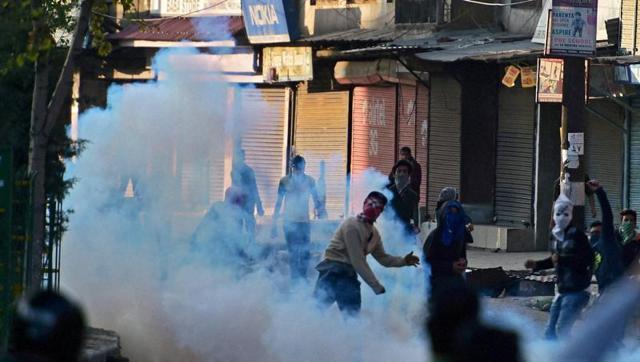Miss Alone
Prime VIP

The BJP’s expanding imprint, the Congress’s diminishing footprint — that’s the sum of assembly poll results in four states and a Union territory. What we have is more of a BJP-yukt (fitted) than a Congress-mukt Bharat.
Ousted from power in two states, the Congress is abysmally down. Not out. Its 115 seat haul in five battles compares better than the BJP’s 63, the bulk of which came from Assam. The saffron party improved its vote and seat share in West Bengal and Kerala but failed to open account in Tamil Nadu and Puducherry.
But is that the way the Congress should be looking at the outcome? Not really. Having grown at its cost, the BJP now rules most states with issues impinging on national security: Assam, Arunachal, Jammu and Kashmir, Punjab, Rajasthan and also Gujarat. It has none except itself to account for myriad internal security and cross-border challenges for which it blamed the Congress in these states.
The politically-guided discourse on cross-border terrorism, relations with Pakistan, illegal migrants from Bangladesh and the boundary dispute with China could see now a reversal of roles. If the BJP fails to measure up to the task, it could well be handed down the whipping boy role the saffron outfits had foisted on the Congress by showing it as being soft on what they called Islamic terror.
At the kernel of the saffron victory in Assam is the popular outrage the Sangh kept fuelling, post the AASU agitation, over furtive arrivals from Bangladesh. Its campaign distinguished between Hindus who were welcome and Muslims who weren’t. How they handle now the complex problem with a bearing on ties with Dhaka should engage the Congress. Will it?
All these are the openings the Congress cannot exploit with the wavering focus and scattered vision it has shown in its critiques of the NDA’s handling of Nepal or its hyped up engagements with China and Pakistan. The answer isn’t in becoming a latter day BJP. It’s in proving the UPA’s pro-talks approach right retrospectively.
Kashmir, for instance, is in ferment under the PDP-BJP working at cross purposes in Jammu and the Valley, exacerbating alienation among Muslim youth. It’s hard to see on the ground the realization of the PM’s promise to make the regime work in national interest. The BJP has countless questions to answer there. The Congress isn’t posing many! Not at least the way it did in the AugustaWestland controversy when its leadership came under attack.
So a change the Congress can effect faster is the way it ideates, debates and deliberates internally to put forth its policies and track-record when the BJP is seen as tripping on issues of national import. A case in point: The NDA had the UPA on the mat on the Sharm-al-Shaikh statement referring to India’s alleged role in Balochistan. In comparison, the Congress’s riposte to the NDA allowing a Pakistani team into the terror-hit Pathankot air base was tepid.
Getting its talking points right would also help the Congress in the 2017 assembly polls in seven states, including Gujarat and Punjab, where it will be pitted against the fire-spewing, glib-talking Aam Aadmi Party. Getting the communication strategy right in a polity where airwaves are clogged could be competitive but not as cumbersome as an organizational makeover.
One isn’t sanguine therefore about the Congress undergoing a quick-fire overhaul. The efficacy of a round of musical chairs is doubtful also as the party needs to alter its glacially slow work culture. India has changed. So must the grand old party. More than at the top, it needs young boots on the ground. Lazy congresspersons crowding party ranks need to be retired or redeployed.
